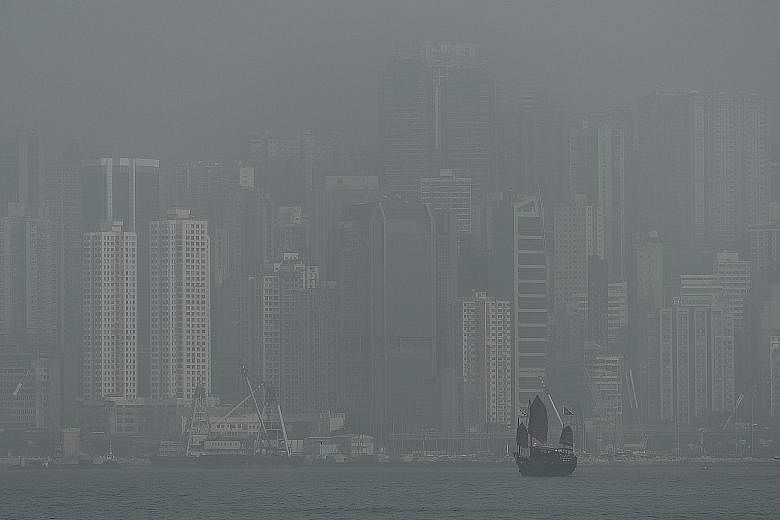HONG KONG • Prolonged exposure to fine air pollutants heightens the risk of dying from a number of cancers, including of the upper digestive tract, liver and breast, a study that tracked more than 66,000 seniors in Hong Kong has found.
While previous studies have linked lung cancer with long-term exposure to fine particulate matter, the new study by researchers from the University of Hong Kong and the Institute of Applied Health at the University of Birmingham said that the risk of dying from any cancer could be raised.
"We suspected that these particulates could have an equivalent effect on cancers elsewhere in the body," said Dr Thuan Quoc Thach of the University of Hong Kong, one of the main co-authors of the paper, which was published by the journal Cancer Epidemiology, Biomarkers & Prevention last Friday.
The study followed more than 66,000 people over the age of 65 in Hong Kong between 1998 and 2011.
The researchers used satellite data and fixed-site monitors to estimate the concentration of PM2.5 particles - atmospheric particulate matter (PM) that has a diameter of less than 2.5 micrometres - at their homes.
After accounting for other factors such as cigarette smoking, the study found that the risk of dying from cancer rose by 22 per cent for every 10 micrograms per cubic metre (mcg/m3) of increased PM2.5 exposure, although it did not prove the particles actually cause cancer.
Every 10 mcg/m3 of increased PM2.5 exposure was linked to a 42 per cent higher risk of dying from upper digestive tract cancer and a 35 per cent increased risk of dying from liver, bile duct, gall bladder or pancreatic cancer.
For women, increased exposure heightened the risk of dying from breast cancer by 80 per cent. Among men, the risk of dying of lung cancer rose by 36 per cent with every 10 mcg/m3 of PM2.5 exposure.
The team believes that the link between PM2.5 and cancer could be due to defects in DNA repair function, changes in the body's immune response or inflammation that fuels the spread of tumours.
"The implications for other similar cities around the world are that PM2.5 must be reduced to reduce the health burden," said Dr Neil Thomas of the University of Birmingham, the other main co-author of the study.
Dr John Groopman, an environmental health expert at Johns Hopkins Bloomberg School of Public Health, who was not involved in the study, told The Washington Post that the results could be extrapolated to similar cities such as Singapore and New York.
In Singapore, the one-hour PM2.5 pollutant reading reached a high of 471 mcg/m3 in October last year, but experts were divided on how harmful that was to health.
While some said even a one-time event could be considered potentially hazardous, others believed that only prolonged exposure to high PM2.5 concentration levels should be a cause for concern.

